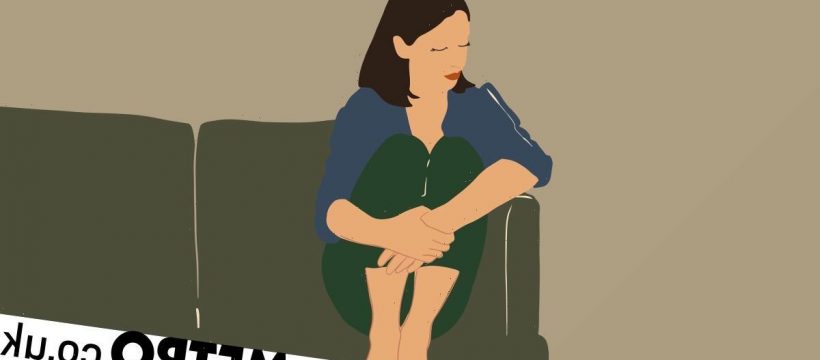The world of dating and relationships has so many highs, but rejection is definitely one of the most brutal lows.
It’s likely we’ve all experienced rejection in our lives – whether it’s a post-date ‘I think we should be friends’ text, a partner meeting someone else, or even being ghosted – it can hit us in a plethora of different ways.
But the end result is always the same.
Rejection makes us feel pretty awful about ourselves and can often send us spiralling down a self-critical rabbit hole.
Dr Elena Touroni, a consultant psychologist and co-founder of The Chelsea Psychology Clinic, tells Metro.co.uk: ‘No one likes rejection. We gain self-esteem from our connections in life – both from friendships and romantic relationships – because they help us feel likeable and loved.
‘So, when we are rejected, we’re not only grieving the loss of a relationship, but we might also find that we question ourselves. We might question whether we did something wrong or what it says about us as a person.
‘But, unfortunately, rejection is an inevitable part of life – and therefore also in dating. Because of this, it’s important that we try to find peace with it.’
So how do we overcome this in a positive way? Particularly when it makes us feel so rubbish.
Experts have shared some simple ways to deal with dating and relationship rejection:
Accept your emotions
Perhaps the most important thing to do after any rejection is to accept how you are feeling.
Jessica Alderson, CEO and co-founder of dating app So Syncd, says: ‘Burying your feelings can be a quick short-term fix, but it’s not healthy in the long run. It’s OK to experience sadness, anger, disappointment or whatever else you might be feeling.
‘Emotions are our body’s way of telling us to take action. There have been numerous studies that show ignoring our emotions can have negative impacts on our physical and mental health.’
After all, it’s not just the person you’ve lost, but your future with them, too.
Relationship expert Margaret Bankole adds: ‘Allow yourself to experience all of the emotions – cry, and get it out of your system.
‘When you break up with someone, you also break up with some hopes and dreams, so grieve and do things for you.’
Don’t let it define you
As with any setback in life, it’s important not to let it take over.
Jessica adds: ‘Just because you’ve been rejected, it doesn’t mean that there’s something innately wrong with you. It just means that you aren’t right for that specific person at that time.
‘Experiencing rejection doesn’t mean you are unlovable or undateable. You won’t be a perfect match for everyone, no one is.
‘There are billions of people in the world and your self-worth should never depend on a single person’s opinion. The right person will appreciate you for who you are.’
Put a positive spin on it
There’s something to learn from every experience we have in life – particularly when it comes to dating.
So it could be a good idea to take a step back and ask yourself what learnings you can take with you going forward.
Relationship psychotherapist Heather Garbut says: ‘Take this chance to really evaluate so that you grow from this experience and choose a better partner in the future, one that fits you, values you and is and is equal to you.’
While Jessica adds that rejection can be a great way of building resilience.
She says: ‘In fact, sometimes rejection is a blessing in disguise and it’s simply they could see something missing that you didn’t realise.’
Don’t let your inner critic take over
If you’ve experienced rejection, it’s unlikely you’re going to be feeling at your best.
It’s therefore really important to be kind to yourself.
Heather says: ‘Watch out for the harsh judge voice inside you – especially if it echoes anything your ex partner has said about you that is unkind.
‘Separate yourself out as much as possible from their judgments.’
Consider mindfulness and other coping methods
Dr Elena Touroni adds that if you’re struggling to let go of a particular rejection, mindfulness can help refocus your mind on the present moment.
She adds: ‘You can also practice something we call “radical acceptance” in Dialectical Behaviour Therapy (DBT). Radical acceptance is when we accept things the way they are.
‘When we radically accept something, it doesn’t mean we have to like it – it’s simply about acknowledging reality. There are certain situations in life that you just can’t change, so by accepting them for what they are, we can gain some closure.’
Do you have a story to share?
Get in touch by emailing [email protected].
Source: Read Full Article


